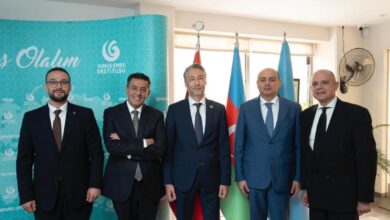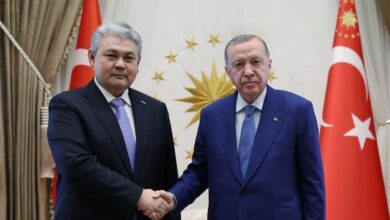Kazakhstan Pledges 100% Internet Access for All Citizens by 2027

Kazakhstan is aggressively pursuing universal internet access, aiming to connect 100% of its population by the end of 2027. This ambitious goal is underpinned by massive investment, with over 1 trillion tenge poured into the telecom sector over the past three years, resulting in an increase in average internet speed to 94 Mbps, according to the UKIMET Telegram channel.
Speaking at a government meeting, Deputy Prime Minister – Minister of Artificial Intelligence and Digital Development Zhaslan Madiev outlined the details of the “Affordable Internet” National Project for 2024–2027. “By the end of 2027, we plan to ensure 100% internet coverage for the population. Internet speeds will exceed 100 megabits per second, and fiber-optic communication lines will be extended to 90% of rural settlements,” Madiev stated.
The Vice-Premier further detailed the infrastructure expansion, noting that an additional 3,000 villages will be connected with fiber-optic lines by the end of 2026, bringing the overall rural coverage to 90%. The fiber deployment alone represents an investment of 323 billion tenge. The remaining 10% of small, remote villages will be provided with satellite internet access.
In parallel with fixed connectivity, mobile network coverage is also set for a significant boost. The Minister highlighted that 4G technology will reach 92% of all inhabited localities. Furthermore, the 5G network is slated for deployment across 20 cities of regional and national significance, aiming for 60-75% territorial coverage. Connectivity on major transit routes is also a priority, with plans to cover 40,000 km of highways with 4G communication by the end of 2027.
Beyond connectivity, the government is also intensifying efforts to combat fraud. “The Ministry has introduced new requirements for telecom operators,” Madiev stressed.
These measures include implementing biometric identification for subscribers, classifying fraud as unauthorized traffic, and regulating the interaction between telecom operators’ anti-fraud systems and the National Bank. These decisive actions have already proven effective, with over 30 million suspicious calls blocked since the beginning of 2024.



